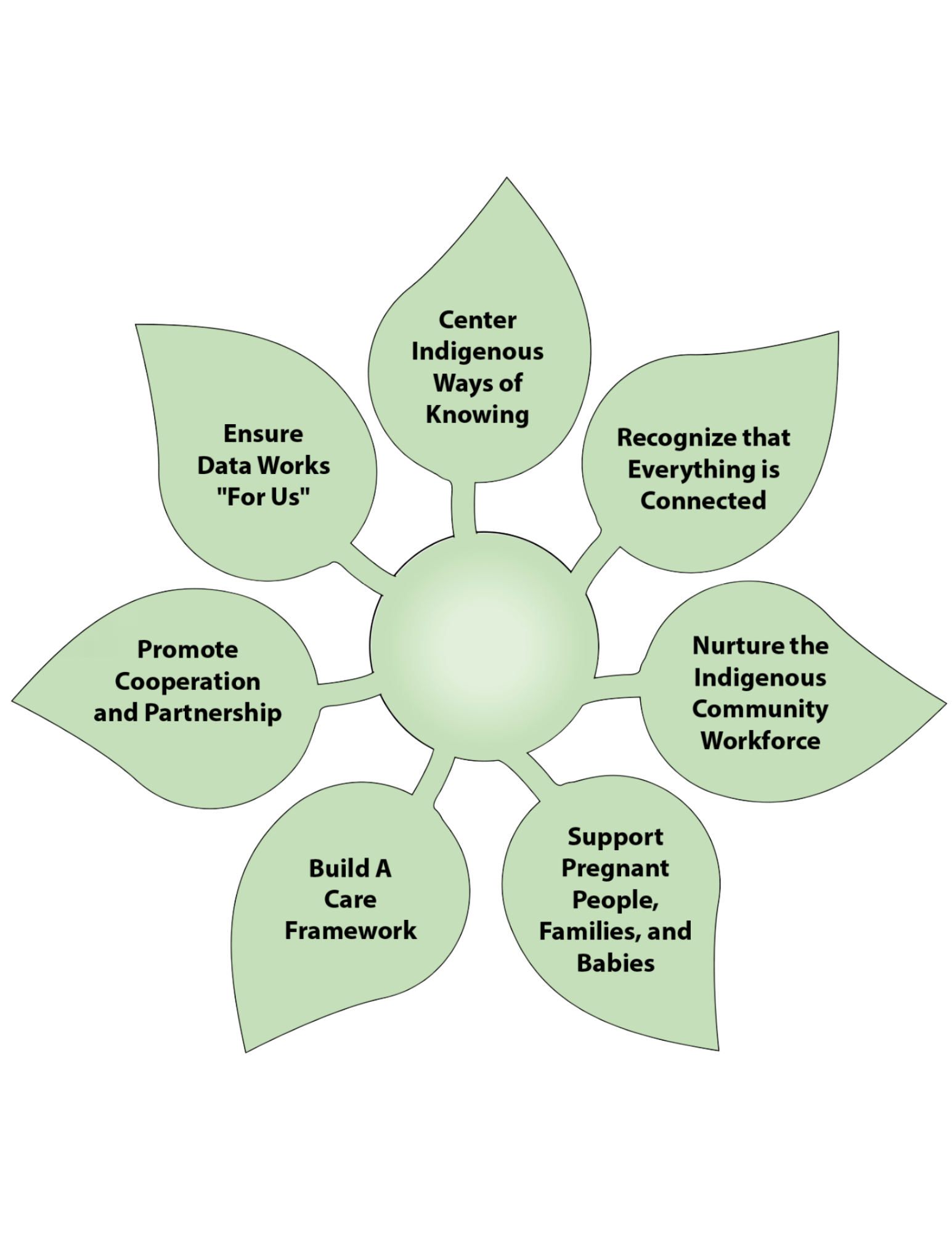We Are Part of Seven Generations
We are pleased to announce the release of We Are Part of Seven Generations: Themes and Recommendations from the Indian Country Congenital Syphilis Taskforce. This initiative highlights critical strategies and policy recommendations needed to address the congenital syphilis crisis impacting Indigenous communities.
The current surges of congenital syphilis in the US underscore longstanding health inequities in Indigenous communities and illuminate what Indigenous communities need to achieve health and wellness. To be effective, solutions in Indigenous communities must come from a place that honors sovereignty and Indigenous knowledge and wisdom; respects community strengths, leadership, and truths; and relies on community driven solutions.
The Raven Collective, in partnership with Cardea and with support and funding from the National Association of County and City Health Officials (NACCHO), convened the Indian Country Congenital Syphilis Taskforce in January 2024. The goal of the Taskforce was to explore current systems, obstacles, resiliencies, and stories to develop the strategies needed to address the needs and concerns of congenital syphilis in Indian Country.
Taskforce findings created a Care Framework for Congenital Syphilis Response that emphases:
Centering Indigenous Ways of Knowing
Recognizing that Everything is Connected
Nurturing the Indigenous Workforce
Supporting Pregnant People, Families, and Babies
Building a Care Framework
Promoting Cooperation and Partnership
Ensuring that Data Works for Us
Care Framework for Congenital Syphilis Response
Addressing the congenital syphilis epidemic among Indigenous people requires a deep understanding of the complex and intersecting systemic factors influencing Indigenous people’s well-being.
Download the Report
Please read the report and find out what we can all do to help.
